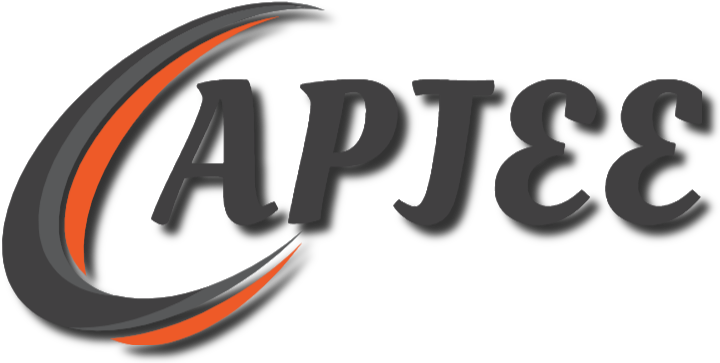Assessment of Water Quality Index of Groundwater Resources in Iwo Local Government Area, Osun State, Southwestern Nigeria
DOI:
https://doi.org/10.18034/apjee.v8i1.599Keywords:
Contamination, groundwater, water supply, quality, treatmentAbstract
This study assessed the groundwater quality of 30 selected wells and boreholes in Iwo Local Government Area, Osun State, Nigeria. Groundwater sources were randomly stratified and identified according to the 15 political wards using hand-held GPS equipment. The sources were sampled during the rainy season (October) and dry season (January) to determine water quality. The physico-chemical and microbiological parameters of the water samples such as temperature, turbidity, total suspended solids, pH, electrical conductivity, total dissolved solids, total alkalinity, total hardness, chloride, sulphate, nitrate, phosphate, magnesium, calcium, iron, zinc, lead, manganese, cadmium, chromium, and total coliform were determined using standard methods. The results showed that total hardness, calcium, cadmium, sulphate, and phosphate had mean values above the acceptable values for rainy and dry seasons; their mean values in mg/l for the rainy season were 252.933, 98.267, 0.018, 305.119, and 1.762, respectively, while their values for the dry season were 299.633, 115.831, 0.020, 285.695 and 1.705, respectively. The Water Quality Index (WQI) values showed that 30% of the selected groundwater sources were fit for consumption while 60% were poor and 10% were unfit for drinking during the rainy season. During the dry season, 50% of the groundwater sources were fit for consumption, 40% were poor, and 10% were unfit for consumption.
Downloads
References
Acharya, S., Sharma, S. K., and Khandegar, V. (2018). Assessment of groundwater quality by Water Quality Indices for Irrigation and drinking in South West Delhi, India. Data in Brief, 18(June 2018), 2019–2028.
Adegbola, A. A., and Adewoye, A. O. (2012). On Investigating Pollution of Groundwater from Atenda Abattoir Wastes, Ogbomoso, Nigeria. International Journal of Engineering and Technology, 2(9), 1–17.
Ahmed, S. S. (2017). Assessment of Groundwater Quality Parameters Using Multivariate Statistics- A Case Study of Majmaah, KSA. International Journal of Environmental Monitoring and Analysis, 5(2), 32–40.
Atobatele, E. O., and Olutona, G. O. (2013). Spatio-seasonal physico-chemistry of Aiba stream, Iwo, Nigeria. African Journal of Biotechnology, 12(14), 1630–1635.
Ayodele, A., and Olufunmilayo, A. (2012). Impact Assessment of Selected Pollution Sources on Groundwater Quality in Wells in Gambari Community, Ogbomoso, Nigeria. International Journal of Modern Engineering Research, 2(5), 3118–3122.
Dohare, D., Deshpande, S., and Kotiya, A. (2014). Analysis of Ground Water Quality Parameters : A Review. Research Journal of Engineering Sciences, 3(5), 26–31.
Herojeet, R., Rishi, M. S., Lata, R., and Sharma, R. (2016). Application of environmetrics statistical models and water quality index for groundwater quality characterization of alluvial aquifer of Nalagarh Valley, Himachal Pradesh, India. Sustainable Water Resources Management, 2(1), 39–53.
Jeje, J. O., and Oladepo, K. T. (2014). Assessment of Heavy Metals of Boreholes and Hand Dug Wells in Ife North Local Government Area of Osun State, Nigeria. International Journal of Science and Technology, 3(4), 209–214.
Mahapatra, S. S., Sahu, M., Patel, R. K., and Panda, B. N. (2012). Prediction of Water Quality Using Principal Component Analysis. Water Qual Expo Health, 4, 93–104.
Munna, G., Nury, A. H., Islam, S., and Rahman, H. (2015). Spatial Distribution Analysis and Mapping of Groundwater Quality Parameters for the Sylhet City Corporation (SCC) Area Using GIS. Hydrology, 3(1), 1–10.
Nas, B. (2009). Geostatistical Approach to Assessment of Spatial Distribution of Groundwater Quality. Polish J. of Environ. Stud., 18(6), 1073–1082.
National Population Commission, N. (2006): Population Census Figure.
Ogunbode, T. O., Akintunde, E. A., and Akinola, O. T. (2016). Assessment of underground water quality and pollution sources apportionment in a growing urban centre in Osun State South Western Nigeria. European Journal of Geography, 7(3), 71–85.
Oko, O. J., Aremu, M. O., Odoh, R., Yebpella, G., and Shenge, G. A. (2014). Assessment of Water Quality Index of Borehole and Well Water in Wukari Town, Taraba State, Nigeria. Journal of Environmental and Earth Science, 4(5), 1–9.
Oladepo, K. T., Jeje, J. O., Ogedengbe, M. O., and Fadipe, O. O. (2012). Technical Assessment of a University-Based Ozone-Treated Bottled Water Production System. Transnational Journal of Science and Technology, 2(9), 31–46.
Olutona, G. O., Akintunde, E. A., and Otolorin, J. A. (2012). Physico-chemical quality assessment of shallow well- waters in Iwo, southwestern Nigeria. Journal of Environmental Science and Water Resources, 1(6), 127–132.
Sharma, S., and Chhipa, R. C. (2013). Interpretation of ground water quality parameter for selected area of Jaipur using regression and correlation analysis. Journal of Scientific & Industrial Research, 72(December), 781–783.
Verma, A., Thakur, B., Katiyar, S., Singh, D., and Rai, M. (2013). Evaluation of ground water quality in Lucknow, Uttar Pradesh using remote sensing and geographic information systems (GIS). International Journal of Water Resources and Environmental Engineering, 5(2), 67–76.
WHO. (2017): Guidelines for drinking water quality: fourth edition incorporating the first addendum. Geneva.
--0--
Downloads
Published
Issue
Section
License









